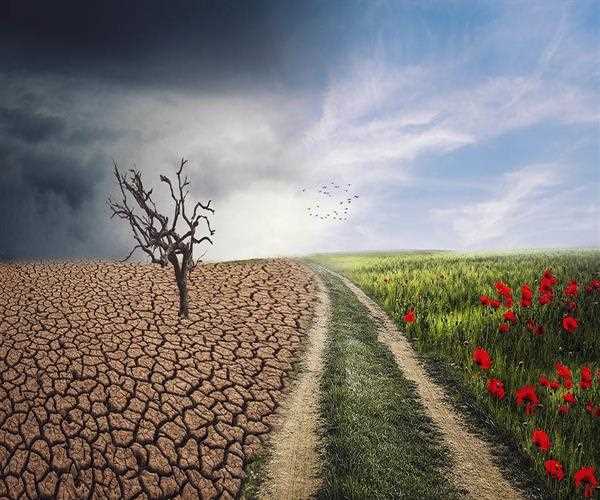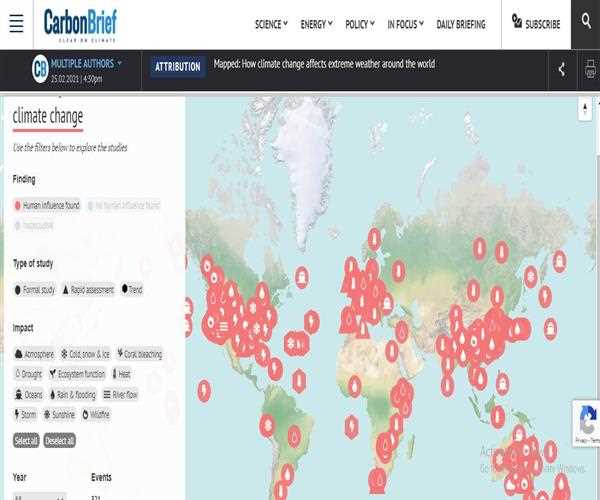
20-Sep-2021
Code Red for humanity: Is it too late to prevent climate change?
When we hear the Scientists shout “Save the Earth from warming up”, we tend to ignore it. We look at the facts and information, then return back to our usual routine.
When we hear of sudden cyclones and floods at unusual places, we sign in despair and return to our usual routine. But why the hell do we do that?
Well, there is no science behind this conscious human behavior, but what happens when we subtly start to feel heat waves after 3 days of heavy rainfall? What happens when the weather takes an unexpected turn? What happens to us when we start feeling the jeopardy of constant climate change?
We feel confused! These slow but consistent changes exist in the environment on every level and they tend to affect us on a daily basis. But what are we going to derive from them?

All heads turn up when a forest near their home catches wildfire, or a densely populated place experiences heavy flooding. People start to think of the receding population day by day, but what they don’t think about is, the receding environment every minute.
There are vast glaciers melting and sea-level rise happening every minute. Big chunks of glaciers melt every minute and merge with the sea. They cause the sea-level rise. The massive ice chunks of the Arctic region are warming faster than the rest of the planet and they are the cause of worry for sea-level rise in most of the coastal regions.
On the other hand, the constant warming of the globe is caused by greenhouse gases and the poisonous emissions daily. The factories and other places tend to create so many emissions that it affects the atmosphere adversely. Scientists have been explaining these facts for ages.
The point is, WHO CAUSED THESE UNPRECEDENTED CHANGES? Humans!
And now humans are worried about their survival after exploiting nature to its par. When there is nothing left to take, they curse the environmental changes for these unpredictable calamities.
The summers are awfully hot round the year and the winters are not so chilly. People don’t experience the chilled waves anytime sooner than the last of December to January. Then their timing is too short- I mean the winters elope till February end in most parts of the world.

The last year saw a plethora of unfortunate hazards that took place due to environmental changes. The burning of the Amazon rainforest, or floods in China & Germany, droughts in Africa & America, or heavy flooding in India…all have been the causes of environmental exploitation. But the biggest worry is- all these places were the most unexpected to be hit by nature’s hazards!
What will the next 20 years look like?
The scientists are trying to pinpoint that the sea level has risen by 7-8 inches in the past 25 years itself. So what type of risk does it bring for the world, esp. for the coastal cities?
Also, the reports calculate that the global temperatures could rise up to 1.5 Celsius in the next 20 years. Is that how fast the globe is warming? What happens to all the “sustainability pacts” that the international governments made & forgot? Will sustainability ever be achieved?
More widespread devastation & unprecedented extreme weather changes are yet to be seen as the Paris Agreement on Climate change is already breached by many nations.

In the picture shown above, an insight from a website called ‘Carbon Brief’ is given where the areas marked with red show ‘human influence found’. This map educates about the rising level of carbon consumption and emission around the world.
Look closely… a Climate doom?
• Moon wobbling is expected by 2030. This would cause the sea-level rise and ultimate heavy flooding around the globe for 3-4 months.
• Extreme heat waves in coldest places like Canada (experiencing up to 50 degrees Celsius).
• Arabian Sea experiencing extreme cyclones & hurricanes
• We humans have intensified the levels of natural climate change. We have disrupted the natural process of climate change that happens over 50- 100 years and have brought it to as low as 15-20 years.
• The warming trend has rapidly increased since the 1970s with the past 5 years being the hottest of all.
• Due to these trends, the planet is suffering from wounds every inch.
• About 93% of the Earth’s imbalance has been caused by the warming of oceans.
• These changes are going to be deadly for human health as well. According to WHO, the rising temperatures could lead to exponential human deaths subtly.
• Also, many diseases like malaria, dengue, heat stress & defects could also occur through these.
• Environmental changes are becoming a cause of anxiety & depression in humans.
• Loss in food calories could lead to serious food shortages in the future.
• Epidemics (like the deadly coronavirus) could eat an entire planet in no time.
• Crop yield could be affected as climate change has a negative impact on the nutritional value of crops. This would again lead to food shortages.
• Also, floral development is facing a decline affecting the pollinator insects.

On one side, the man is walking into space as an achievement but on the other hand, he is closing all his opportunities on Earth by exploiting the environment. So an achievement at the cost of what?
We still don’t have the answer if it is already too late to stop climate change, but I can assure you, it is not yet late to save the planet! All the strategies are in our hands, we just need to deploy them. For securing our future on this planet, we need to take the present crisis seriously.
Half of the problems would be solved if we duly perform our responsibilities. But if we keep an inconsiderate attitude and slower capability to realize, then the world would be a hard place to survive. We have already shifted the time period for natural climate change years early, so, if we want a pleasant planet for our future generation, then now is the right time. All these developments would go in vain if there is no place to exist.

Student
I am a content writter !
Join Our Newsletter
Subscribe to our newsletter to receive emails about new views posts, releases and updates.
Copyright 2010 - 2026 MindStick Software Pvt. Ltd. All Rights Reserved Privacy Policy | Terms & Conditions | Cookie Policy